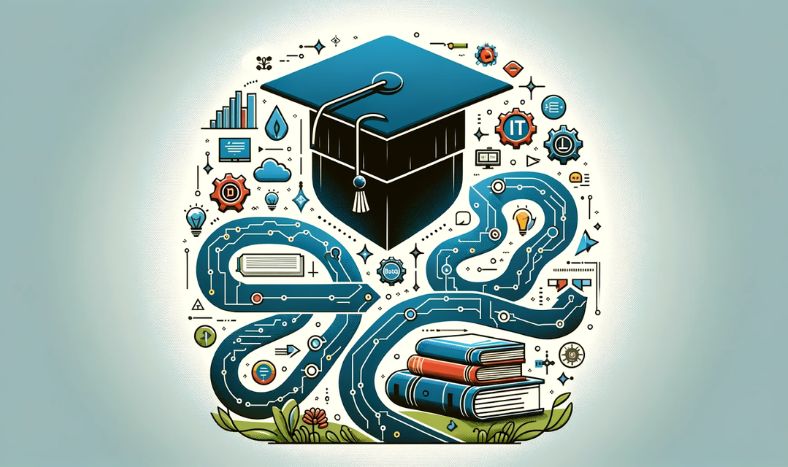People also read
Various occupations, each calling for a particular mix of experience and education, are available in the Information Technology (IT) sector. It is more vital than ever to be aware of these job paths and the education required to thrive in this rapidly changing technological landscape.
This blog aims to provide information about the many different IT careers and the various educational paths one can pursue to become one of these professionals.
Exploring Information Technology Career Pathways Assignment
Software development and computer programming are only small parts of information technology. It covers a lot of ground, from data analysis and cybersecurity to network management and more. If you want to know what skills are required for different jobs, you may use that information to narrow your career options.
Emerging Trends and Opportunities
There are always new career options in information technology because the field constantly changes. Keeping up with the latest developments in IT, such as AI and blockchain, can lead to exciting new career opportunities.
Educational Foundations for IT Careers
An extensive degree in computer science or a closely related subject, along with certifications accepted by employers, is usually required to enter the information technology field. Formal education and specialized credentials give prospective IT workers the tools to adapt to the dynamic and complex IT industry.
Degrees and Certifications
While a bachelor's degree in computer science or a closely related discipline is generally considered the minimum need for entry-level positions in the IT sector, several certifications can offer even more specific expertise that employers greatly respect.
The Role of Practical Experience
In information technology, practical experience is essential through internships or completed projects. In addition to improving education, it gives students a leg up when applying for jobs.
Customizing Your IT Education Path
To personalize your IT education, choose programs and courses relevant to your intended IT career path assignment. This will help you achieve your professional and personal goals more effectively.
Your educational experience will be more relevant and applicable to your intended career in the IT industry thanks to this tailored approach, which allows for a more targeted development of skills and knowledge.

Choosing the Right Program
Your educational and professional aspirations must be carefully considered before deciding. Getting a degree in the old-fashioned way, taking classes online, or completing a certification program all have advantages.
Continual Learning and Upskilling
Learning new things and improving one's abilities are necessities in information technology education and qualification assignments. To advance professionally over the long run, one must adopt this attitude and dedicate themselves to continuous learning.
Integrating Skills and Qualifications
Technical expertise and soft abilities like communication and problem-solving are needed to construct a complete IT career profile. Because of this integration, IT personnel may better use their technical knowledge in practice, increasing their marketability in a volatile field.
Balancing Technical and Soft Skills
Soft skills, such as the ability to communicate and solve problems, are just as critical as technical knowledge when it comes to a job in information technology. It is essential to nurture both elements.
Adapting to Industry Needs
Those working in information technology (IT) need to be agile and responsive to meet the ever-evolving demands of their field. Moreover, it is essential to be adaptable and open to new knowledge.
Crafting a Successful IT Career
Adapting one's education and work experience to meet the ever-changing needs of the IT sector is critical to building a successful IT career. Keeping up with technological developments necessitates getting the proper credentials and constantly adapting and learning new things.
In addition, combining classroom learning with practical experience, this all-encompassing strategy opens doors to successful and flexible IT careers in today's dynamic industry.
Conclusion
The educational decisions you make and the career paths you pursue will determine your IT journey. You can achieve a fulfilling career in information technology with the correct combination of education, work experience, and ongoing training.
References
- Career Path | Information Technology | ASVAB CEP. (n.d.). Retrieved from https://www.asvabprogram.com/career-cluster-pathway-16
- Degrees, Salaries, And Job Outlook For Information Technology Careers – Forbes Advisor. (n.d.). Retrieved from https://www.forbes.com/advisor/education/careers-in-information-technology/




